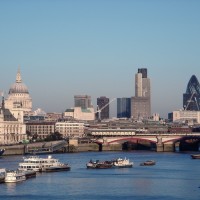
According to data collated by Octane Capital on property purchases in the last financial year, second property purchases accounted for 50 per cent of sales in some London boroughs.
The lender, which launched in May 2017 and has lent £1.2bn over 2,500 loans, said England’s housing market has been “on fire” for the last two years.
One of the reasons why demand is high is because people are buying additional properties, Octane suggested. It estimated that 10 per cent of the population own an additional property, with the majority investing in a buy-to-let (BTL) residence.
It’s analysis found that there were 230,800 additional property purchases, which equated to 23 per cent of all housing market transactions, in 2021.
Regionally, places where additional homes accounted for an above average portion of the market included Yorkshire and Humber at 24 per cent, the North West at 26 per cent, and North East at 26 per cent.
The most active additional home market in London was Kensington and Chelsea where 1,200 additional home purchases equated to 52 per cent of all market activity in the borough.
In Westminster, additional homes accounted for 48 per cent of all transactions, followed by Camden, 38 per cent, Harrow, 38 per cent and Brent at 37 per cent.
Second homeowners and BTL
The boroughs with the lowest percentage of additional homes are Waltham Forest, Lewisham, and Bexley, in all of which they account for 21 per cent of market activity.
Jonathan Samuels, chief executive of Octane Capital, said: “Some may frown upon second home owners, but the fact of the matter is that the vast majority are buy-to-let landlords, not high-end homeowners restricting stock availability by purchasing rarely used holiday retreats.
“So while almost a quarter of all transactions may be attributed to second homes, these purchases are serving a vital purpose, providing much needed rental market stock to a nation that is becoming increasingly more reliant on long-term renting as a means of living.”
“Of course, there are exceptions to the rule and London’s prime market is certainly one of those exceptions. Across the likes of Kensington and Chelsea and Westminster a higher propensity for second home ownership is undoubtedly being driven by wealthy homeowners increasing their own private portfolio, rather than investing,” he added.















